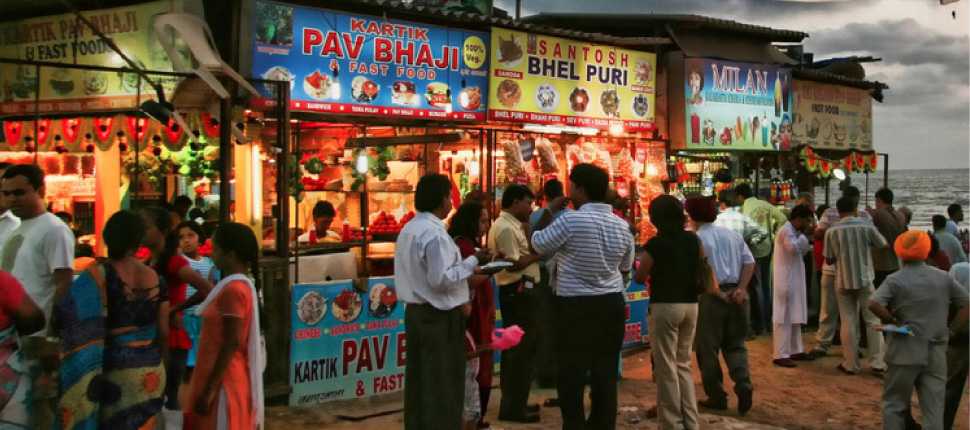


– Unveiling the Dynamic Challenge in Japan, India, and Beyond –
Has it ever crossed your mind that
In countries like India and Indonesia, where the food market is growing significantly due to population bonuses, unicorns such as Zomato, Swiggy, and GrabFood are emerging. For cloud kitchen service, BOX8, FreshMenu, InnerChef, Hangry, Yummy Corp, they are also outstanding. However, it is important to recognize the high risk in this sector, as evidenced by the fact that 80% of startups fail.
Through this opportunity, I want to explore a thought: Is the food delivery business a high-risk venture that takes advantage of economic disparities? If this is true, it might reveal more about the long-term growth and future challenges unicorn companies in this industry are likely to face. Let’s look at Japan first and compare it with India and Indonesia situation for a clearer perspective.

Japan’s food delivery market is said to be more than twice that of India, USD$8 bn, but it has no unicorns. Top food delivery companies like Demae-can, menu, Inc., and D Delivery are either struggling for various reasons or have gone bankrupt. Demae-can, the top player in Japan, has been in the red for five consecutive years. The deficit is attributed to a continuous decrease in GMV and active users even since Covid-19. If user numbers plateau, the only option to maintain profitability is to raise fees. Although there are plans to turn a profit by 2025, growth in food delivery alone is deemed no longer viable.
A reason for this early market saturation in Japan is the lack of a formula which is:
“People who can buy at high prices and those who will deliver at low wages”
Japan, albeit having some economic disparity, is a country where this is less pronounced, especially in urban areas like Tokyo and Osaka with low unemployment and relatively high minimum wages. Even with well-developed infrastructure, delivery costs inevitably become high. Moreover, with the high density of food establishments, especially convenience stores, there’s a limited base of customers willing to pay a premium for regular food delivery.

In countries like Finland, where business models relying on social disparities and low-wage labor don’t thrive, the unicorn Wolt has made the following statement:
“We aims to create a ‘shopping mall in your pocket‘. Deliver more than just food menus. We were one of the first to deliver from membership-based wholesale retailers like Costco and drugstores, also expanding our cooperation with convenience stores, local supermarkets, and department stores. This expands the variety of products available for order via our smartphone application.”
Finland has high labor costs and many regions with low population density, making it a challenging market for delivery. However, by expanding the category of items they deliver, Wolt has gained a fan base as a service that provides ‘everything at your fingertips, delivered with care’.

Indeed, in Japan too, Wolt and Uber are growing their revenues with this strategy, transforming food delivery companies into more than just food deliverers. It’s worth noting that Demae-can (Yahoo LINE), MENU (KDDI Corporation), and d Delivery (NTT DOCOMO, INC.) are all either started by large corporations or quickly acquired by them, indicating the absence of pure Japanese startups in this field.
In the food delivery business, where the revenue model is extremely sensitive (digging into deficits to increase GMV), non-food handling is essential in Japan, where low-wage labor isn’t feasible. In other words, starting a company means immediately competing with giants like Amazon or Seven & i Holdings and AEON CO. (M) BHD. in e-commerce and daily goods. Hence, I believe the market inevitably becomes dominated by large corporations.
The growth of the food delivery business is fueled by demographic changes, urbanization, middle-class expansion, and tech advancements— key external drivers of a country’s economic growth, often highlighted in many articles.
However, given the struggles of the Japanese market with pure food delivery over the past five years as mentioned earlier, my attention are growing about the food delivery industry’s potential dependence on, and possible aggravation of, economic disparities. Because this could pose risks for long-term success and lead to social distortion:
I am still considering 1) whether the relentless expansion and streamlining of the market by pure food delivery businesses are viable for long-term success, and 2) if they inevitably require a measure of economic disparity.
Based on this hypothesis, several questions arise:
I do not have definitive answer hence, would like to welcome the insights and perspectives of the readers on these point.
When I ordered food delivery in Indonesia during Christmas, the convenience of delivery service made me remind of the people selling on the streets or locally, and the conversations and communities that emerge from there.
“When confronted with overwhelming convenience, we must also face the societal sacrifices that lie beneath it.”

Street Food in Mumbai, India
Written by Hirayama Rei, Principle Investor at ICMG Ventures. Ex-African Venture Capitalist, now based in Singapore, targeting India and South East Asia Market.
【About ICMG Group】
ICMG Group has been leading co-creative innovation not only in Japan but also in Southeast Asia and US together with various stakeholders such as leading Japanese big corporations, startups, and government agencies. ICMG Group has also carried out renewable energy investment projects in Southeast Asia with Tokyo Electric Power Company and Chubu Electric Power Co, formed a strategic partnership in Singapore with UNDP to promote the Sustainable Development Goals (SDGs), and launched the sustainable city initiative project in Japan with Aichi Prefectural Government. ICMG Co-Creation Fund aims to create a sustainable society by providing growth capital and strong partner network of leading Japanese corporations to startups that solve social issues.
【About ICMG Co-Creation Fund】
ICMG Co-Creation Fund was launched in May 2021 and is being managed by ICMG Partners as the General Partner. The Limited Partners are Japan Airport Terminal, which operates Haneda Airport Terminal Building and its group company Haneda Future Research Institute(LP investment from Japan Airport Terminal), and Kiraboshi Bank, which aims to become “a comprehensive service provider with strong financial capabilities”. The fund aims to build an ecosystem that leads a sustainable future by encouraging co-creation between startups that solve social issues beyond industries and Japanese large companies. In addition to providing startups with speedy growth capital, we also aim to provide growth support by offering collaboration opportunities with ICMG Group’s network of Japanese large companies.
For media inquiries, please contact:
ICMG Partners Co., Ltd.
Public Relations Office
Phone:+81 03-6812-2548
Email:[email protected]